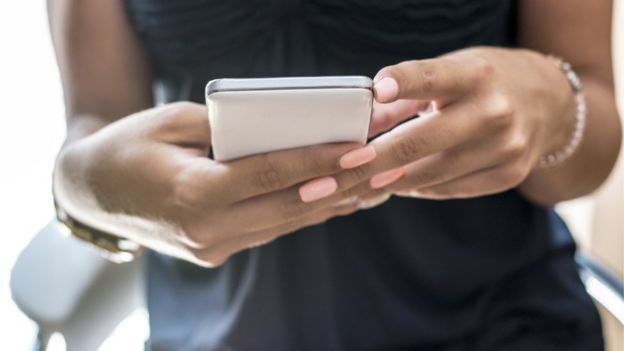The market is booming in apps which offer women the chance to monitor the cycles of their monthly periods.
There are thought to have been as many as 200m downloads of period tracking apps worldwide.
But a leading UK medical royal college has warned that women should not rely on them as a form of contraception.
And privacy campaigners say users should be wary of what data they might unwittingly be sharing when they download some apps.
A search for period tracking apps will quickly bring up dozens of offerings – some with charts, others illustrated with pink tulips or lilac flowers.
In the health and fitness category, period trackers come second only to apps which monitor running.
Amy Worsfold, from Greenwich, south-east London, has used different trackers for three years. She is a soprano opera singer.
Amy told me: “When you are starting your period or you’re pre-menstrual, the hormones that rush around your body affect your larynx in ways that are detrimental to your singing voice.
“I use the app to avoid auditions, premieres or really important performances on those days if I can.”
‘Taking ownership of something that sucks’
She plots and predicts her cycle on her smartphone. The app also helps her identify connections with changes in her emotions, eating habits and headaches.
Amy added: “Being able to chart what happens to you and how you uniquely respond to your cycle is a great way of taking ownership of something that really sucks – but is completely necessary.”
Sometimes women download period trackers to monitor their fertility.
But the Royal College of Obstetricians and Gynaecologists has warned they should not be used as a form of contraception.
Only one such app on the market has been independently evaluated for effectiveness in this area.
Generally, they are not classed as medical devices, which would involve stricter regulation.
‘Very powerful tool’
Ida Tin is the Berlin-based Danish entrepreneur behind an app called Clue. Around 10% of her market is in the UK.
She said: “I wanted to develop the next generation of technology for family planning – and I do believe we’ll get there. But we’re not there yet.”
 Image copyrightTHINKSTOCK
Image copyrightTHINKSTOCKWomen in Mexico and Brazil have recently shown huge interest in Clue, possibly because of fears about getting pregnant during the Zika virus outbreak.
Ida Tin is interested in how anonymised user data from her free app can be used for the greater good.
To this end, she is collaborating with medical researchers at Oxford University. She has built her business on a responsible approach.
She added: “The app is a very powerful tool. I can’t do what our users want me to do unless I use their data.
“I appreciate I’m asking people for a lot of trust in me, but a lot of companies [in the same line of work as mine] don’t honour that trust.”
‘Nobody reads terms and conditions’
Some apps which are more firmly pointed at conception have a clear value to advertisers – as a woman planning a baby is a potential market for prams, clothing and many other purchases.
Sam Smith is a privacy campaigner at medConfidential.
He said: “For all medical apps, but especially for conception apps, there needs to be a source people can trust that’s independent and says this app is safe for you.
“You can read the terms and conditions – and legally you are required to. But everybody knows that nobody does.”
He sees the lack of regulation, or even official recommendation, as a market failure in this area.
His advice is that if an app is free, consider whether you are paying for it in effect by giving away your data – and investigate where it might be going.
[Source:- BBC]








